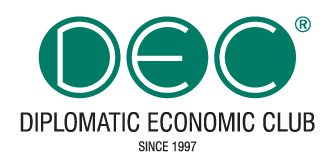Who’s afraid of European federation?
Commission President’s call for a „federation of nations“ has aroused a new wave of reflections concerning European future. Politicians in the Baltic States are facing a tough time accommodating closer ties with the new „Union’s powers“.
It was forthe third time in the history of the EU that Commission’s President delivered aState-of-the-Union address to the plenary session of the European Parliament(12-09-2012). The tradition seemed to survive as a reminder that it is theCommission that takes all important initiatives in the Union. Curious enough,the event has been actually emulated from the US President’s address to theCongress with the same title. Does it mean that the European Union is slowlyturning into the „United States of Europe“ under the pretext of a „federation“?
Newdirections of integration (with numerous „new unions“) and „new thinking“ havebeen Mr.Barroso’s message to the MEPs; as well as more European unity in orderto overcome the crisis and „maintain European sovereignty in a globalisedworld“. However the increase of the „Union’s sovereignty“ shall be reached atthe expense of and a reduction of sovereignty in the member states. More thanthat, the Commission seemed to suggest „enhanced federation“ (as not all themember states agree – presently – with the idea) as step towards moredemocracy. „Globalisation demands more European unity,said Mr.Barroso and more unity demands more integration whereas moreintegration demands more democracy," No doubt, this message needs moreexplanations…
Federation of states or nations?
Politiciansin the „new European states“ looked worried: the idea of the EU federation (ofstates) has been already discussed about a decade ago with a special Conventthat elaborated a then highly praised „Constitution for Europe“. The ideafailed –three states rejected the notion of federal constitution; instead wehave today „a reformed Lisbon Treaty“ in force as the basic EU law fromDecember 2009. It seems that theCommission’s changing the tack: the new proposal is to „federate nations“ notthe states, or is it a play of words?
It is notfor the Baltic States: the formation of nations is still going on these states,where the „statehood“ has been acquired after the end of the first world (e.g.for Latvia in 1918). In fact, the EU in 2004 joined the three Baltic States,rather than the three nations. Hence the general notion that so-called maturenations are less afraid of „loosing sovereignty“ as soon as they know what theycan get in return.
Baltic leaders’ opinion
It isinteresting to see how, for example, Latvian politicians reacted onCommission’s proposal for a new federation.
Latvian President, Andris Berzins: “The Commission’sleader vision of EU and his assessments are quite logic and grounded. In orderto survive, the EU has to change and move towards more closer cooperation.However, we have to see how far the federal power would go and how the wholeprocess would proceed“.
Latvian Prime Minister, Valdis Dombrovskis: „The crisis has shownthat the monetary union cannot be successful without a diplomatic union (?!).It is quite clear that we are proceeding towards more closer union, more strictfiscal and economic coordination as well as towards banking union“.
Latvian Parliament’s Speaker, Solvita Aboltina: „Such a broad transferof sovereignty cannot be performed without public referenda“.
Latvian head of the Foreign Office, EdgarsRinkevic:„Barroso’s idea of states’ federation (?) is not explicitly explained, hence itis difficult to comment. However we do not have to be afraid of the word„federation“: we have witnessed already the EU as a freewill union of nationstates. It is important that the recognition of our national state in a futurefederation or the union of states shall not be threatened. Federation of the USpattern is hardly possible in the EU; we are too different“.
Eugene Eteris, magazine Baltic-course.com










